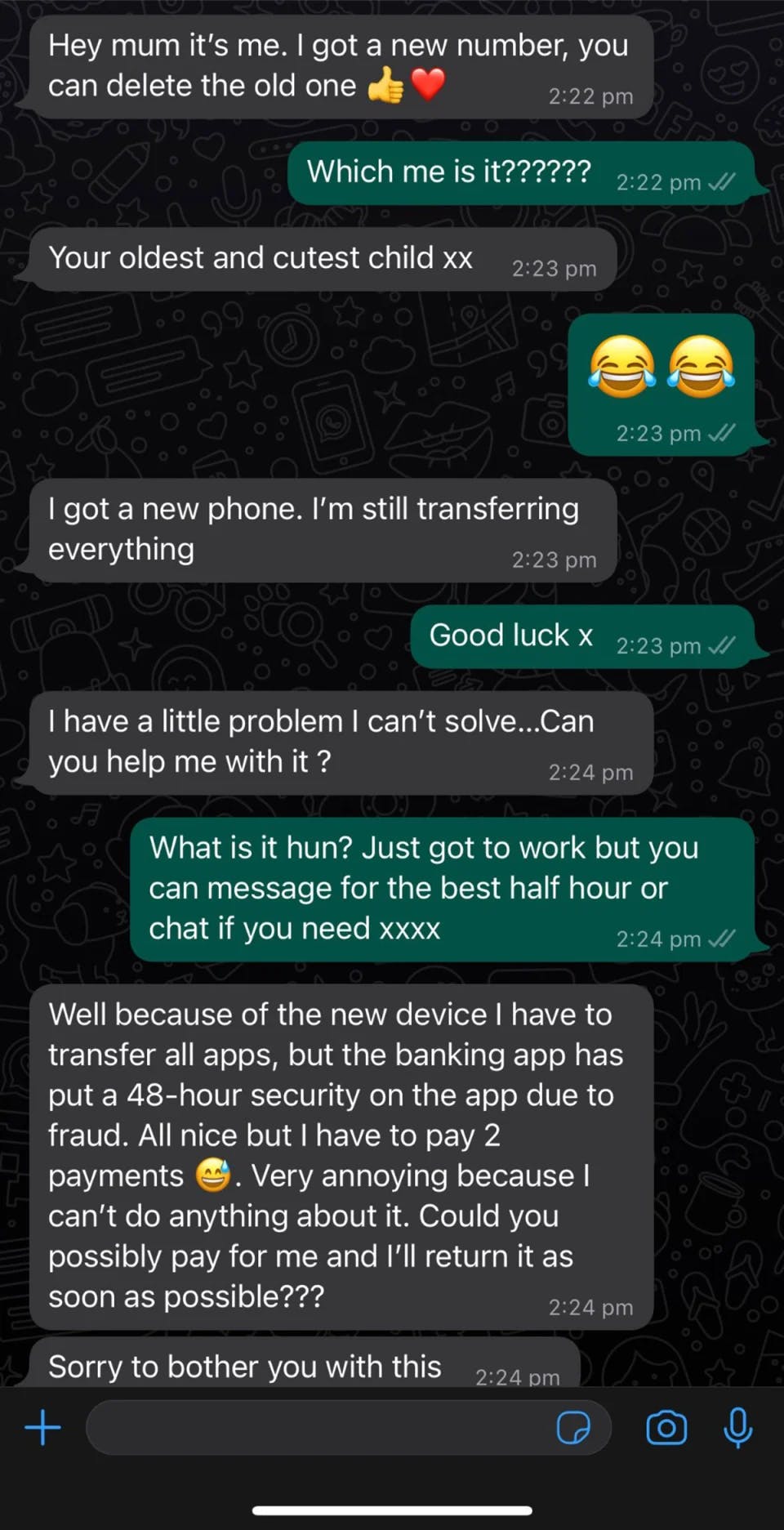Have you ever received an unexpected text or chat message from someone claiming to be your child and asking for money? It may sound like an unlikely scenario, but it is actually quite a common type of scam known as the “Hi Mum/Dad” scam. This scam preys on people's emotions, often with devastating results. In this article, we will discuss the Hi Mum/Dad scam and how to protect yourself against it.
What is the Hi Mum/Dad Scam?
The Hi Mum/Dad scam is a fraudulent message sent via a messaging app or social media platforms such as Messenger, WhatsApp or Snapchat. The sender claims to be a distressed family member, pretending they have a new number because their phone was lost, broken or stolen. The sender may then say they are in trouble and ask to borrow money or make a payment on their behalf to help pay a bill. Whatever story they tell, the goal is always the same - to convince you to send them money as soon as possible.
How Does it Work?
These scammers use specific tactics to manipulate their victims into sending them money without question. They use personal details such as names, relationships, and locations that make the chat seem more real; they create a sense of urgency by telling their victims they must act immediately, and they often suggest ways that money can be sent quickly such as making an OSKO payment or buying gift cards. It is important to remember that no matter how convincing the story may sound, it is not real, and you should never send any money without verifying its authenticity first.

An example of the Mum/Dad scam targeting parents via WhatsApp or text messages. Credit: NSW Police Force
How Can You Protect Yourself From This Scam?
The best way to protect yourself from this scam is by being aware of it and educating yourself about how it works. If you receive a message like this, never give out any personal information or send any money before verifying the sender’s identity. Ask questions that only your loved one would know the answers to, or contact other family members who might be able to verify if it is them on the other end of the line. It's also important to remember that no matter how desperate or convincing the messages may sound, never send money without verifying the identity first!
Tips for Staying Safe
Be aware of potential warning signs and keep your guard when talking with strangers. Here are some tips for staying safe:
- Be suspicious when it comes to unexpected messages or requests for money—even if they come from someone you know and trust
- Contact the family member directly using an alternative method, such as their known phone or email, to validate their request before taking any action
- Always ask questions about who they are before giving out any personal information or sending any funds
- Be sceptical if there is pressure for an immediate response
- Never give out bank account information or credit card numbers over the phone
- Verify the story with other family members before responding
- If you think something is wrong, trust your instincts—don't send any money!
The “Hi Mum/Dad” scam has become increasingly common in recent years due to technological advances, making it easier for scammers to target unsuspecting victims. It’s important to stay vigilant against these types of scams by being aware of potential warning signs and never sending money without verifying the authenticity of the sender first. By following these tips, you can protect yourself from becoming a victim of this scam.

.jpg?auto=format&w={width})

.jpg?auto=format&w={width})